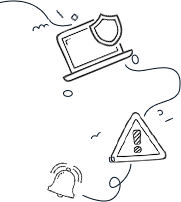Introduction
In a surprising plot twist that even a soap opera would envy, Blue Shield of California recently revealed a data breach—thanks to a misconfiguration in Google Analytics. It seems their attempt to track website usage morphed into a game of “Who Wants to Share PHI?” between Google Ads and their system. The grand finale? Personal Health Information (PHI) was accidentally shared from April 2021 to January 2024. Talk about a long-running series!
This colossal data exposure, spanning nearly three years, affected 4.7 million Blue Shield members. If you’re one of them, you might want to prepare for a crash course in PHI privacy in this new era of healthcare drama!
Inside the PHI Breach
Blue Shield caught wind of this issue on February 11, 2025. Yes, you read that correctly—February 2025! Better late than never, right? They promptly severed the connection between Google Analytics and Google Ads. However, the lingering question remains: how did it take them over a year to discover this breach? It’s almost like finding out your fridge has been running since the last ice age!
The exposed data included names, insurance plan details, city, zip code, gender, family size, account identifiers, medical claim details, and even “Find a Doctor” search criteria and results. Thankfully, no Social Security numbers or financial data were compromised—because who needs that level of chaos?
The notification process for affected members turned out to be as clear as mud. The company can’t pinpoint which individuals’ data was exposed due to the breach’s complex web of chaos. Meanwhile, they’re on a quest to review websites and security protocols to prevent future disasters. Spoiler alert: it’s a detective story!
This unauthorized sharing of PHI with Google Ads—without the patient’s permission or a proper Business Associate Agreement (BAA)—is a clear HIPAA no-no. Cue the alarms: this is a reportable breach, and it’s raising eyebrows about potential penalties and class-action lawsuits. If this were a courtroom drama, the judge would be shaking their head right now.
What This Means For Your PHI
For healthcare patients, situations like this highlight the sneaky risks lurking on healthcare websites, akin to that questionable takeout you regretted ordering at 2 AM. Marketers can utilize this tracked PHI to craft detailed profiles for targeted ads, potentially revealing private health conditions—for instance, your search for a specialist may imply you’re facing a serious health issue. Surprise!
Above all, breaches like this fundamentally betray consumer trust and violate HIPAA regulations. While no “bad actors” accessed the data during this escapade, the exposed information could still be a treasure trove for scammers. Picture this: knowing a patient’s provider or claim details could help them impersonate legitimate entities. Yikes! So, keep an eye out for suspicious activity, just in case.
Conclusion
Blue Shield’s PHI breach serves as a cautionary tale about how poorly handled HIPAA violations can impact patients. When healthcare providers lean too heavily on third-party tools without adequate safeguards, your PHI is left dangling in the wind, much like your Wi-Fi signal in a storm. As a result, patients could see a rise in notifications, and more organizations may find themselves in the hot seat over their third-party supply chains. Ever wondered which third-party applications your healthcare provider uses? Now might be a good time to ask!
Your PHI is some of the most sensitive and personal data out there—like a secret recipe that should not be shared. Learning how to protect it is essential. Understanding when and where exposures happen is equally important. The more informed you are about the latest threats to your healthcare data, the better you can stay safe—armed with knowledge and perhaps a bit of humor to lighten the serious mood!
The post Inside the PHI Breach at Blue Shield appeared first on Cybersafe.




